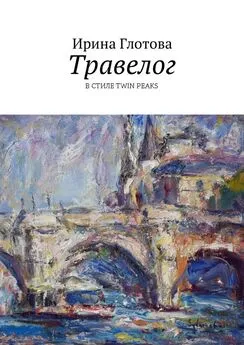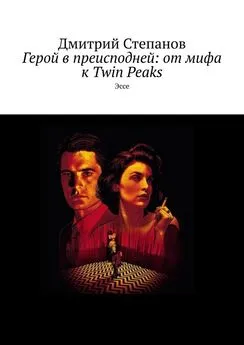Peake, Mervyn - 02 Gormenghast
- Название:02 Gormenghast
- Автор:
- Жанр:
- Издательство:неизвестно
- Год:неизвестен
- ISBN:нет данных
- Рейтинг:
- Избранное:Добавить в избранное
-
Отзывы:
-
Ваша оценка:
Peake, Mervyn - 02 Gormenghast краткое содержание
02 Gormenghast - читать онлайн бесплатно полную версию (весь текст целиком)
Интервал:
Закладка:
The custodian of the Outer Keys, a surly old man with a cast of the left eye, had opened up the room as soon as dawn had broken over the towers. Apart from the occasion of Fuchsia's tenth birthday, the door had been locked since her father, Sepulchrave, was a child. But now, again, the key had turned with a grinding of rust and iron, and the hinges had creaked, and the great playroom opened up again its dusty glories.
This was a strange way to treat a boy on his tenth anniversary; to immure him for the entire day in a strange land, however full of marvels it might be. It was true that there were toys of weird and ingenious mechanism; ropes on which he would swing from wall to wall, and ladders leading to dizzy balconies - but what of all this, if the door was locked and the only window was high in the wall?
And yet, long as the day seemed, Titus was buoyed up by the knowledge that he was there not only because of some obsolete tradition but for the very good reason that he must not be allowed to see what was going on. Had he been abroad he could not fail to have gained some inkling, if not of what lay in store for him that evening, at least of the scale on which the preparations were being conducted.
And the activity of the castle was fantastic. For Titus to have seen a tenth of it must have taken the edge, not off his wonder or speculation, but off the shock of pleasure that he was finally to receive when evening came. For he had no idea what kind of activities were taking place. Fuchsia had refused to be drawn. She remembered her own pleasure too keenly to jeopardize a hundredth part of his.
And so he spent the day alone and save for those times when his meals were brought in on the golden trays of the occasion, he saw no one until an hour before sunset. At that hour four men came in. One of them carried a box, which when it was opened revealed a few garments which Titus was invited to put on. Another carried a light basketwork palanquin, or mountain-chair that rested on two long poles. Of the other two, one carried a long green scarf, and the other a few cakes and glass of water on a tray.
They retired while Titus got into his ceremonial clothes. They were very simple. A small red velvet skull-cap and a seamless robe of some grey material that reached to his ankles. A fine chain of gold links clasped the garment at his waist. These, with a pair of sandals, were all that had been brought and while he strapped the sandals he called to the men to re-enter.
They came in at once and one of them approached Titus with the scarf in his hand.
'Your lordship,' he said.
'What's 'that' for?' said Titus, eyeing the scarf.
'It's part of the ceremony, lordship. You have to be blind-folded.'
'No!' shouted Titus. 'Why should I be?'
'It's nothing to do with me,' said the man. 'It's the law.'
'The law! the law! the law - how I 'hate' the law,' cried the boy. 'Why does it want me blindfolded - after keeping me in prison all day? Where are you going to take me? What's it all about? Can't you talk? Can't you talk?'
'Nothing to do with m' said the man; it was his favourite phrase. 'You see,' he added, 'if we don't blindfold you it won't be such a surprise when you get there and when we undo the scarf. And you see' (he continued as though he had suddenly become interested in what he was talking about) 'you see - with your eyes blindfolded you won't have any idea of where you are going - and then, you know, the crowds are going to be deathly silent and...'
'Quiet!' said another voice - it was the man who had the mountain-chair. 'You have overreached yourself! Enough sir, for me to say' (he continued, turning to the boy) 'that it will be for your pleasure and your good.'
'It had 'better' be,' said Titus, 'after all 'this'!'
His longing to get out of the playroom mitigated his distaste for the blindfolding, and after taking a drink of water and cramming a small cake in his mouth, he took a step forward.
'All right,' he said and standing before the scarf-man, he suffered himself to be bandaged. At the second turn of the scarf he was in total blackness. After the fourth he felt the cloth being knotted at the base of his head.
'We are going to lift you into the chair, your lordship.'
'All right,' said Titus.
Almost immediately after he was seated in the basket-work chair he found himself rising from the ground, and then after a word from one of the men, he felt himself moving forward through black space and the slight swaying of the men beneath him. Without a word, or a pause, each man with an end of the long bamboo poles resting upon his shoulder, they began to move ever more rapidly.
Titus had had no sensation of their leaving the room, although he knew that by now they must have left it far behind. It was obvious that they were still within the walls of the castle for he could both feel the frequent changes of direction which the tortuous corridors made necessary, and also he could hear the hollow echoing of the bearers' feet - an echoing which seemed so loud to Titus in his blindness that he could not help feeling that the castle was empty. There was not a sound, not a whisper in the whole labyrinthine place to compete with the hollow footfalls of the men, with the sound of their breathing or with the regular creaking of the bamboo poles.
It seemed that it would never end - this darkness, and these sounds, but suddenly a breath of fresh air against his face told him that he was in the open. At the same time he could feel that he was being borne down a flight of steps, and when they had reached the level ground he felt for the first time that airborne jogging, as the four men began to trot through an empty landscape.
And it was as utterly deserted as the castle. All the feverish activity of the day had been brought to a close. The gentry, the dignitaries, the officials, the workmen, the performers, the populace, man, woman and child - there was not one who had not arrived at his appointed station.
And the bearers ran on over the darkening ground. Above their heads and reaching down into the west was a great tongue of yellow light.
But with every movement that passed the lustre faded and the moon began to slide up through the darkness of the east so that the light on Titus' upturned face grew sharper and colder.
And the bearers ran on, over the dark ground.
There were no echoes now. Only the isolated sounds of the night - the scurry of some small animal through the undergrowth, or the distant barking of a fox. From time to time Titus could feel the cool sweet gusts of a night breeze blowing across his forehead, lifting the strands of his hair.
'How much further?' he called. It seemed that he had been floating in the basket chair for ever.
'How much further? how much further?' he called again, but there was no reply.
It was impossible to carry so rare a burden as the seventy-seventh earl - to carry him shoulder-high along forest tracks, across precarious fords and over stony slopes of mountains and to have at the same time, while they kept running, any room in their minds for anything else besides. All their awareness was focused upon his safety and the measured smoothness of their rhythmic running. Had he called to them ten times as loudly they would not have heard him.
But Titus was near to the end of his blind journey. He did not know it but the four bearers who had, for the last mile or more, been loping through pinewoods, had come suddenly upon an open shoulder of land. The ground swept downwards and away before them in swathes of moon-chilled ferns and at the base of this slope lay what seemed like a natural amphitheatre, for the land rose on all sides. The floor of this gigantic basin appeared at first sight to be entirely forested and yet the eyes of the bearers had already caught sight of innumerable and microscopic points of light no bigger than pinpricks, that flashed, now here, now there among the branches of the distant trees. And they saw more than this. They saw that in the air above the basin'd forest there was a change of hue. In the darkness that brooded over the branches there was a subtle warmth, a kind of smouldering dusk that in contrast to the cold moon, or to the glints of light among the trees, was almost roseate.
But Titus knew nothing of this swarthy light. Nor that he was being taken down a steep track through the ferns to a district where the great chestnuts far from forming a solid forest, as it falsely appeared from the surrounding slopes, were marshalled a furlong deep about the margin of a wide expanse of water. The points of light that had caught the bearers' attention were all that they had been able to see of the moonlit lake when for a moment they had paused on a high open shoulder.
But what of the glow? It was not long before Titus knew all about it. He was by now among the deep moon-dappled chestnut groves. His exhausted bearers, the sweat pouring down their bodies and running into their eyes, were turning into a ride of ancient trees that led to the centre of the southern bank.
Had his vision been free he would have seen upon his left, and tethered to the low branches of the nearby trees, a hundred or more horses. Their harnessings, bridles, halters and saddles were slung across the higher branches. Here and there the moonlight penetrating the upper foliage set a stirrup dazzling in the gloom or gloated upon the leather of long traces. And then, a little further along the track where the trees were not so numerous, there stood ranged in lines, as though for inspection, a great variety of carriages, carts and traps. Here where there was less covering, the moonlight shone almost unimpeded, and was by now so high and was casting so strong a light that the varying colours of the carriages could be distinguished one from another. The wheels of each were decorated with foliage of young trees whose branches were threaded through the spokes, and with sunflowers also; in the long horse-drawn cavalcade which a few hours previously had made its overland journey to the chestnut woods, there had not been one wheel out of the many hundreds, that, in turning had not set the foliage revolving and the heads of sunflowers circling in the dusk.
All this had been lost to the boy - all this and many another flight of fancy which from hour to hour during the day had been set in motion or enacted according to old customs whose origin or significance was long forgotten.
But the bearers were for the first time slackening their pace. Once again he leaned forward, his hands grasping the basket-work rim of his chair. 'Where are we?' he shouted. 'How much longer will it be? Can't you answer me?'
The silence about him was like something that hummed against his eardrums. This was another kind of silence. This was not the silence of nothing happening - of emptiness, or negation - but was a positive thing - a silence that knew of itself - that was charged, conscious and wide awake.
And now the bearers stopped altogether, and almost at once, across the stillness, Titus heard the sound of approaching footsteps, and then - 'My lord Titus,' said a voice, 'I am here to bid you welcome and to offer you on behalf of your mother, your sister and all who are here gathered, our felicitations on your tenth birthday.
'It is our desire that what has been prepared for your amusement will give you pleasure; and that you will find the tedium of the long and solitary day that now lies at your back has been worth the suffering: in short, my Lord Titus, your mother the Countess Gertrude of Gormenghast, Lady Fuchsia and every one of your subjects are hoping that what is left of your birthday will be very happy.'
'Thank you,' said Titus. 'I would like to get down.'
'At once, your lordship,' said the same voice.
Читать дальшеИнтервал:
Закладка:



